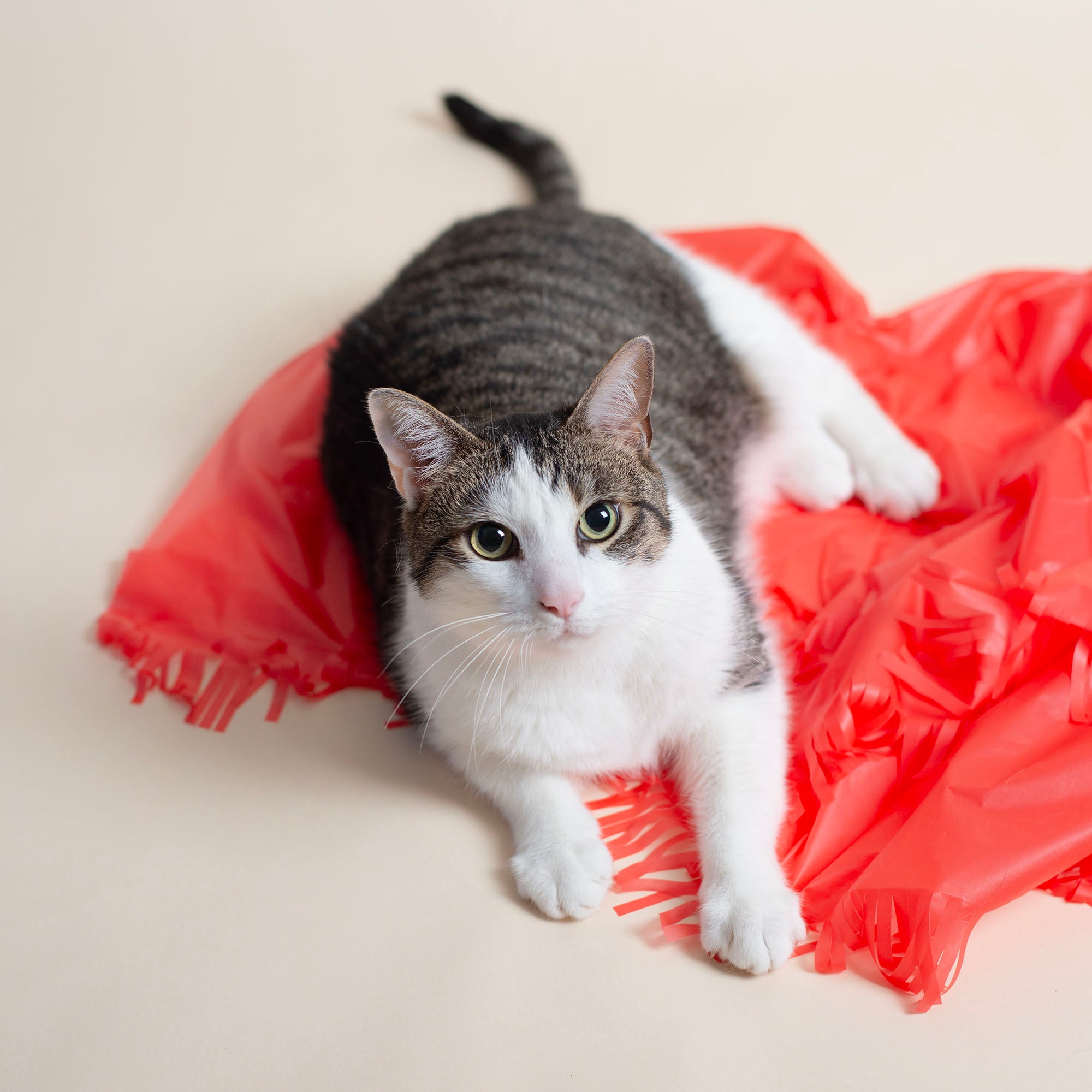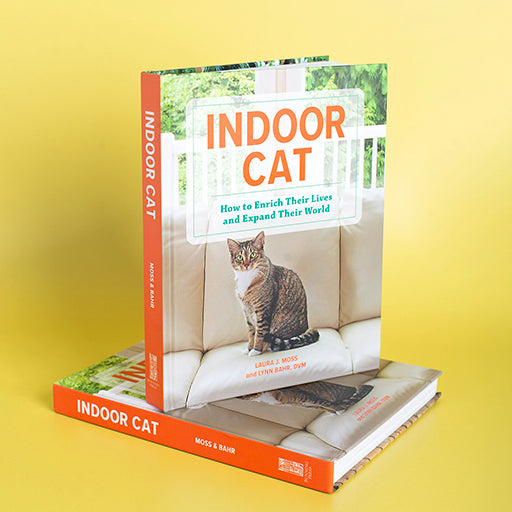Common Causes of Feline Stress
Since you’re here on our blog, you’re definitely a cat lover, so it’s probably no surprise to you that cats can experience anxiety and stress just like humans do. But did you know June 25 to July 1 is Pet Anxiety Awareness Week? This is a great opportunity to discuss some of the stressors that can trigger anxiety in our feline companions.

Everything from vet’s visits to loud noises can make your cat feel anxious and disrupt her daily routine. For indoor cats who have limited territory and room to move, this can be especially problematic.
Cats like to feel in control. This is also probably not a surprise to you, but it’s an important factor in how cats react to stress. They are creatures of habit, who like us, like their routines. Cats have favorite nap spots, favorite treats, favorite toys and even favorite humans. If one of these is taken away or changes, you may start to see small signs of stress.

Sometimes stress can be difficult to spot. Signs may come on suddenly or develop slowly over time. It can manifest as lethargy, pulling out fur, or even a slight change in appetite. In more extreme cases, it can manifest as a serious illness requiring medical attention. Things that stress you out should also be considered as potential stressors for your pets as well. For example, if you suddenly start working longer hours, your cat may seem indifferent but really she is finding a suitable way to cope with her stress. Give her a little extra attention or playtime to show her she doesn’t have to worry or find better ways to keep her entertained while you are away.

However, the bigger the change, the bigger the anxiety a kitty might experience. If you move to a new home, a cat with no prior history of marking may begin to urinate outside the litter box. If a family member goes away to school, a once perfectly easy to get along with kitty may suddenly start picking fights with other cats in the home. Even introducing a new pet can be a huge source of anxiety that sends a cat over the edge and exhibiting unwanted behaviors.

The best ways to avoid anxiety in your pet is to keep routines as consistent as possible. Take a look at daily life from your cat’s point of view to better understand what makes them happy and what doesn’t. Encourage playtime at regular intervals and provide her with a variety of toys that you regularly swap out. It’s also important to pay attention to kitty’s behavior. If your cat doesn’t like being picked up, don’t pick her up. If she prefers chin scratches to belly rubs, honor her preferences.

But if changes are unavoidable, don’t worry. You can still help your cat feel safe. Learn all that you can on the best ways to introduce a new pet, prepare your cat for a move or trip to the vet from resources in books and the internet. Have the proper tools necessary to make any upcoming changes more tolerable for your cat before they happen. Making sure kitty has places to hide helps a lot and so does providing vertical spaces in which to climb and perch. Many felines cope with anxiety by finding comfortable places to “get away from it all.” Scratching helps release stress and adding a few new scratch posts is a wonderful way to encourage them to let off steam.


The bottom line: Cats do suffer from anxiety and need their owners to help them cope with it. Not every solution is right for every cat, so it’s important to get to know your pet’s specific needs and behaviors. But if you pay attention, you will start to notice when your cat needs a little extra TLC and can adapt accordingly.








